Journalism at MTS
In January, Scissorum was relaunched in its new format.This gave the chance to look at the school’s proud journalistic history and the development of its own journals published to parents and the wider school community.
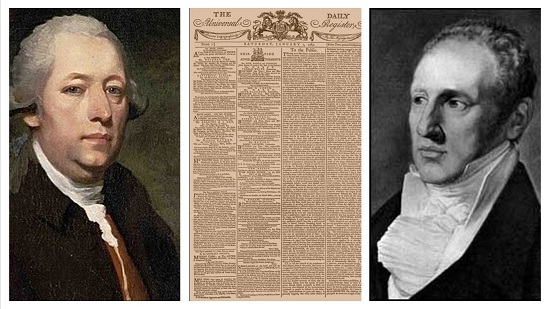 Members of Walter House will proudly proclaim the achievements of John Walter, OMT, who attended the School from 1751 to 1752. The son of a coal merchant, he played a leading role in the foundation of London’s coal exchange before failing in his attempt at being an underwriter at Lloyds. Not downhearted, he entered the world of printing, starting with books (thereby mirroring the career of the controversial MTS Headmaster, William Dugard) before starting a small journal in 1785 entitled The Daily Universal Register which was renamed The Times in 1788. Again, like Dugard, he found himself in trouble with the authorities and imprisoned for libel against powerful opponents so that he handed over the publication to his son, also named John, who had attended the School from 1787 to 1788.
Members of Walter House will proudly proclaim the achievements of John Walter, OMT, who attended the School from 1751 to 1752. The son of a coal merchant, he played a leading role in the foundation of London’s coal exchange before failing in his attempt at being an underwriter at Lloyds. Not downhearted, he entered the world of printing, starting with books (thereby mirroring the career of the controversial MTS Headmaster, William Dugard) before starting a small journal in 1785 entitled The Daily Universal Register which was renamed The Times in 1788. Again, like Dugard, he found himself in trouble with the authorities and imprisoned for libel against powerful opponents so that he handed over the publication to his son, also named John, who had attended the School from 1787 to 1788.
John Walter the younger was notable not only for editing The Times but also for a career in politics where he represented the Whig party and opposed the policies of the government of the day.
Merchant Taylors’ boys may well have been inspired by these notable achievements as there are records of a magazine produced by its scholars as early as 1832. As with many student journals, this first attempt did not last so that in 1849 another attempt was launched. The editors produced articles comparing Private and Public education “it is certain, that at a good private school, even blockheads may be drummed into a decent acquaintance with some useful knowledge", a visit to a colliery “unpicturesque as they most certainly do appear, yet even to the immediate vicinity they are not without their use and advantage” and some poetry as well as historical articles.
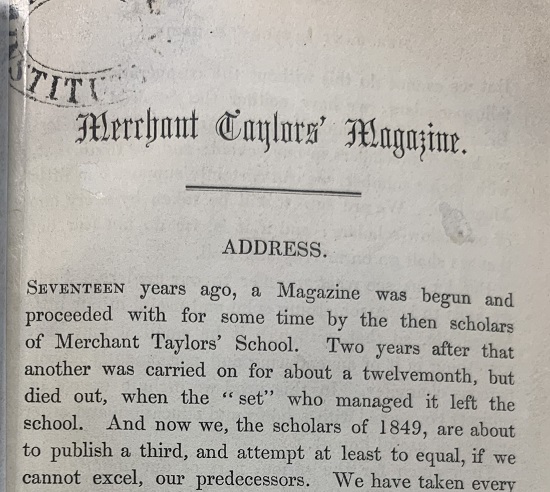
Student journalism has remained strong throughout the life of the school and it is impossible to do it justice in this article. House magazines proved popular, such as the Hilles publication of the 1960s, as they had an air of ‘regional news’ for members of each house. The tradition was revived in the 1990s with the publication of Suspense by members of Spenser House which spawned rival editions from several houses, notably Clive and Mulcaster.
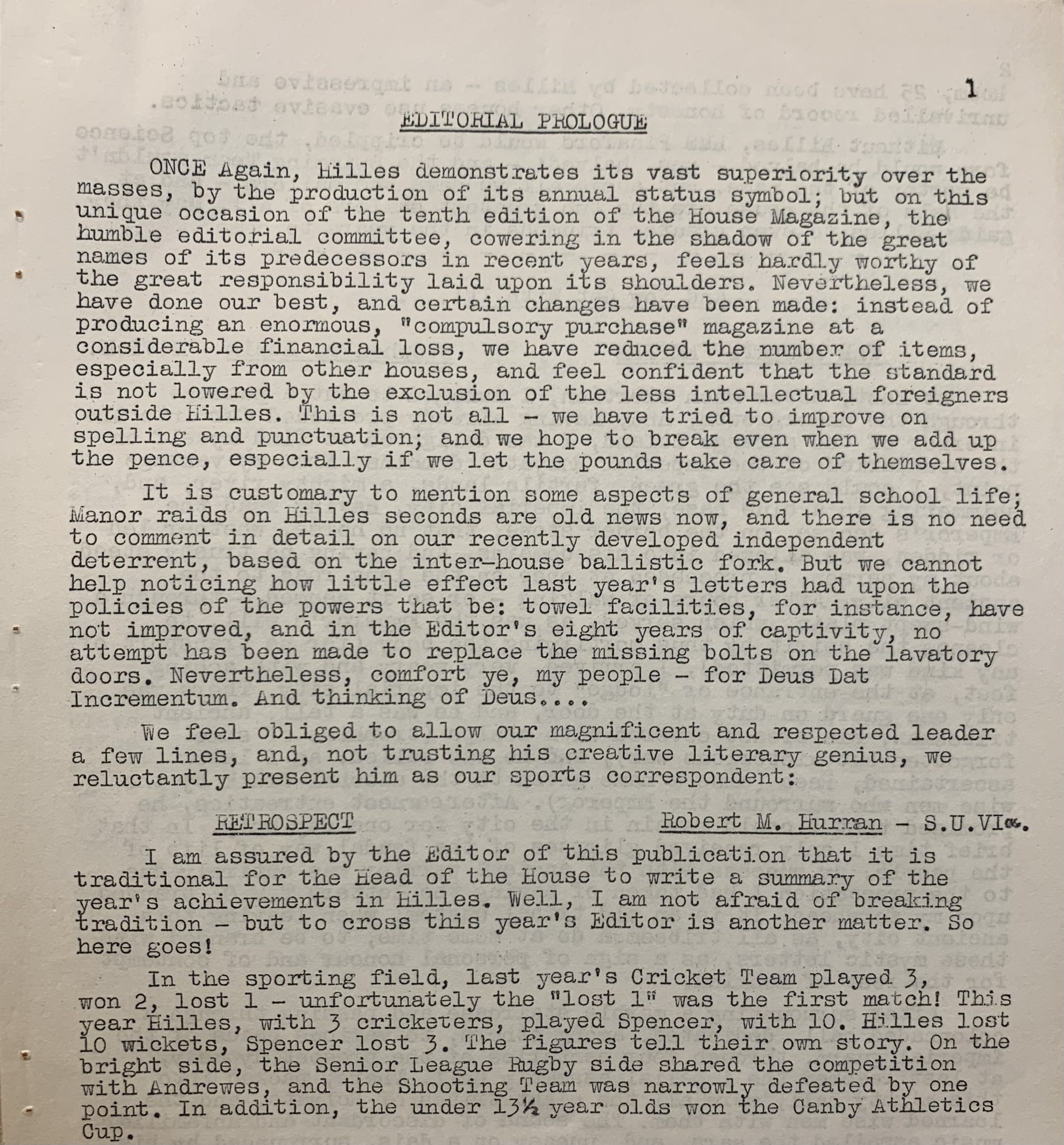
Subject magazines also became very popular, the Geography department continues to publish high quality journals regularly and most departments have ventured into print at some point, depending on the ebb and flow of enthusiastic Heads of Department and Senior boys looking to bolster their university applications.
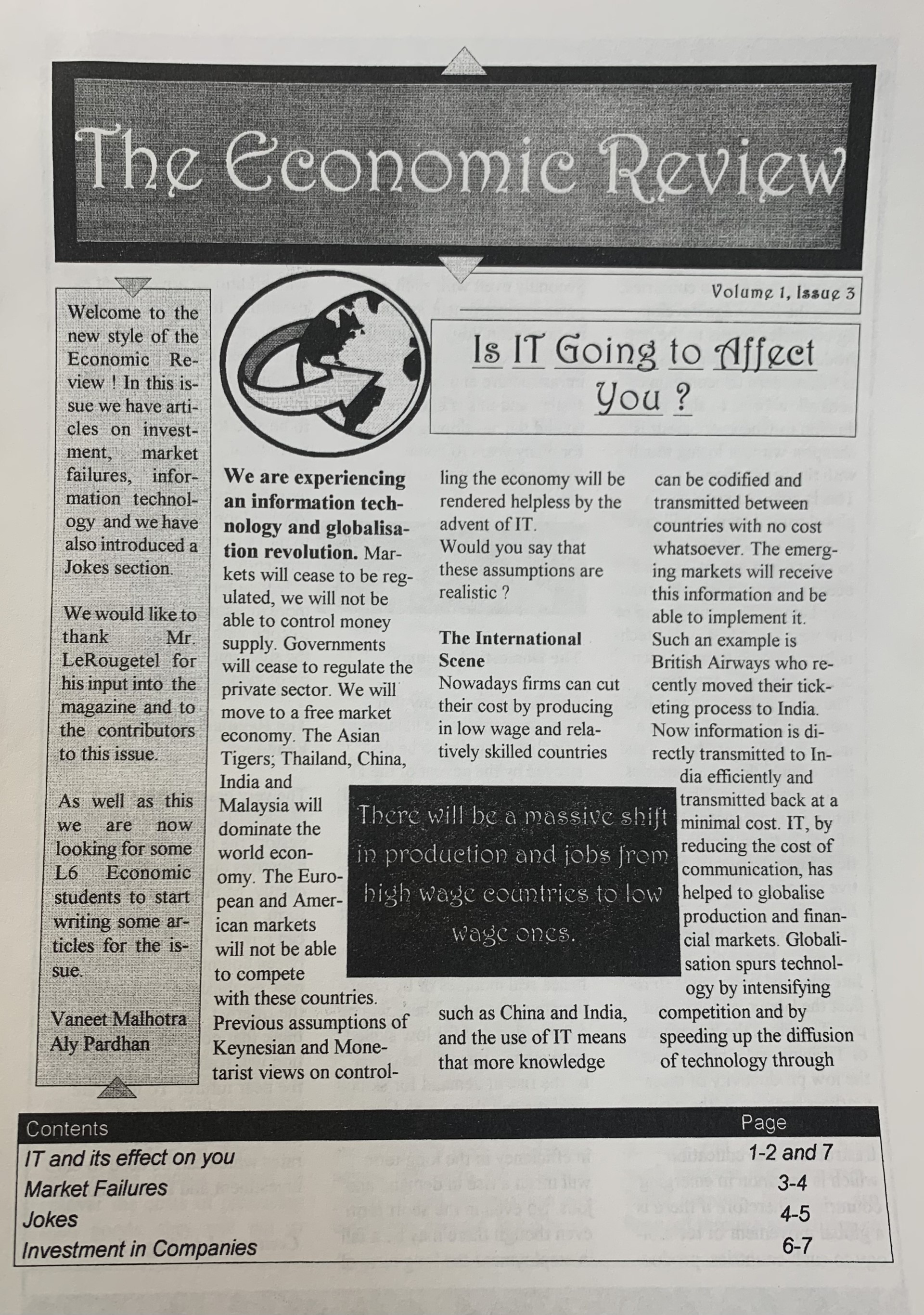
The anarchic side of student writing has never waned, the challenge for the school has been to make sure that nothing libelous is published! Amongst many such publications in its Archive is The Alternative Taylorian, published in 1982 following what the editors considered a “decline” in the school’s formal magazine. Even today it remains controversial, so that the only safe extract to reproduce is from the letters page:

The Dependent is the school's longest running student publication and it continues to offer a wry comment on life at Sandy Lodge. There have been some notable run ins with authority, but it would be safe to say that the staff see it as a badge of honour if they feature in its pages.
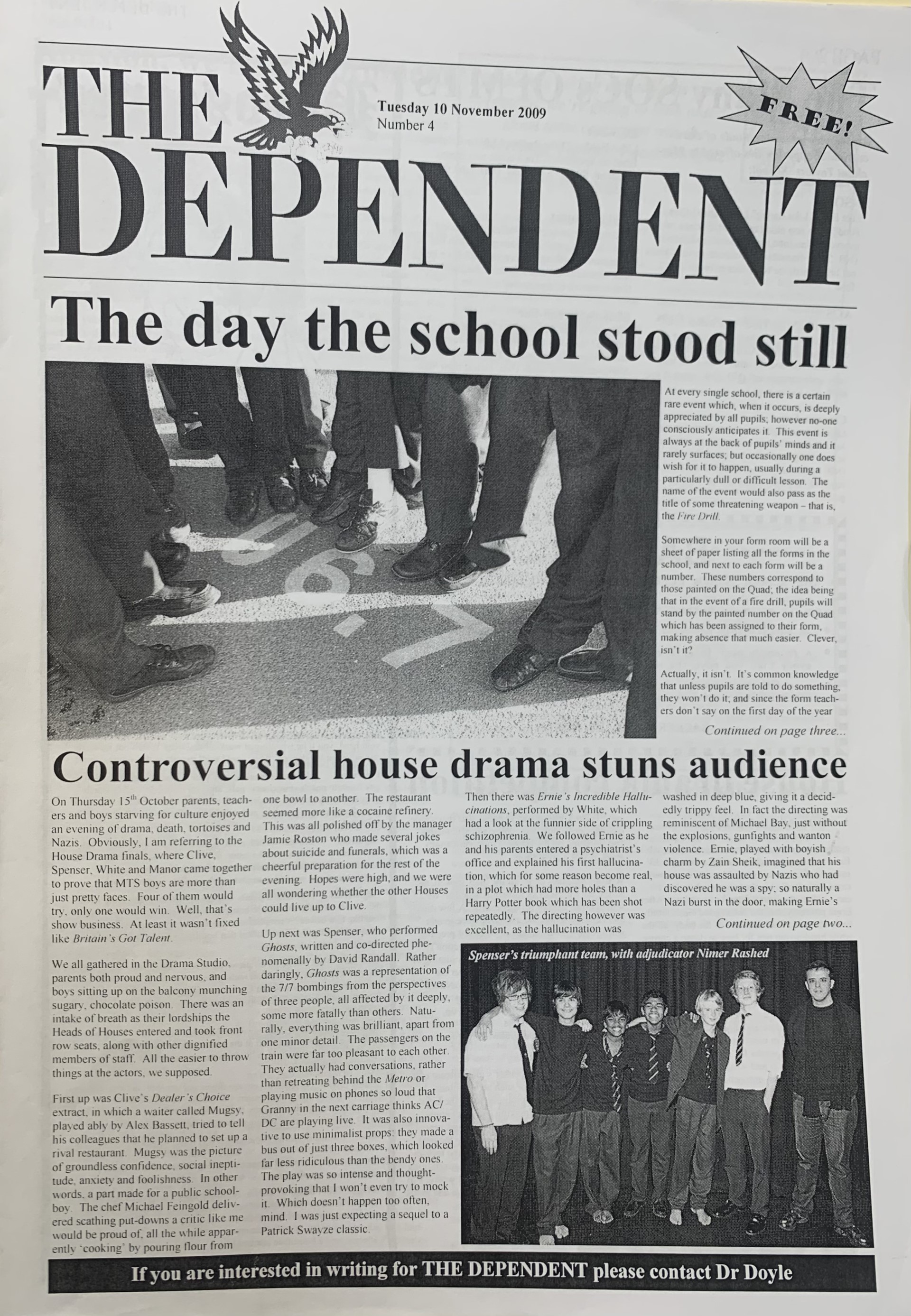
Many of those who cut their teeth in school journals have gone on to establish themselves in the world od media. Samuel Littlewood (MTS 1884-1887) was an editor of The Stage and drama critic of The Morning Post, as well as a fello of the Institute of Journalists. The school's prize for Journalism is named after John Timpson, who left MTS in 1945 at the age of sixteen to become a reporter on the Wembley News. He went on to become a host of Today on Radio Four betweem 1970 and 1986 as well as Any Questions.

Rishi Davda (OMT 2013) works as the Enertainment Reporter at ITV news, whilst Max Kendix (2019) now writes for The Times and Sunday Times, sadly he was in Andrewes House, not Walter! James Tillotson (2020) currently works as a freelancer for the BBC and CNBC and returned to the school last December to talk to pupils about his career so far. Jason Solomon (1988) and Sarrne Richman (2002) both gave online talks about their writing and media careers as part of the MTS Together seminars during lockdown, whilst Farrne has recently published a moving tribute to his grandrfather, a holocaust survivor, in the Jewish News.

The school’s main publication, The Taylorian, began in 1878 and it remains the chronicle of School life that scholars will go to for details of the life of the School. Nevertheless, it has had its challenges with the years 2000 – 2004 marked by no publication and, more recently, the Covid editions having little active school life to record due to lockdown. But the first dedicated publication aimed at parents was Concordia, first published in September, 1984. It was part of a drive to recruit parents to the newly founded ‘Friends of Merchant Taylors’ School’ with the intended aim of helping with future appeals and supporting current activities at the School. It was able to advertise the activities of the Concerts Club, the Scouts Supporters Association and the Ladies Association. Edited by the School Chaplain, Richard Buckner, it had the feel of a parish magazine, typed up by the School secretary and basic fare.
Although By 2003 the magazine had grown into a much more professional newsletter as IT provision improved, the appointment of Chris Roseblade as the School’s first Director of Communications saw publications placed on a more sophisticated footing. By 2006 an external company had been brought in to improve the look of Concordia and when the school appointed its first Development Director in 2008 it was felt that publications could be updated so that a new weekly magazine, Scissorum (first published online in 2012), would be placed alongside a termly newsletter called Parvae Res (first published in 2008, subsequently going online in 2012) and an Old Boys Magazine, which took the title Concordia.
Parental and alumni feedback proved positive to the new model and, allied to social media, enabled the School to pursue an even closer links to the Merchant Taylors’ Community.